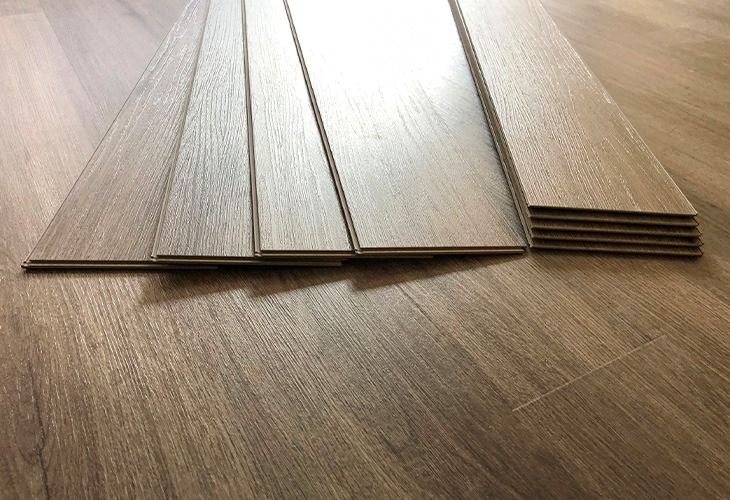-
Singapore
Copyright © 2025 Powered by BCI Media Group Pty Ltd
Confirm Submission
Are you sure want to adding all Products to your Library?
Contact Detail

Vinyl flooring is a type of synthetic floor covering made from plastic or polyvinyl chloride (also known as PVC). Unlike the thin PVC mats found in some traditional kampung houses, modern vinyl floorings come with multiple layers, making it gentle on the feet compared to standing on ceramic tiles for extended periods of time.
When it comes to designs and textures, homeowners have a huge variety to choose from, including styles that mimic hardwood floors, rough stone finish, and ceramic tiles. In our country, vinyl tiles designed for floors that carry a wooden theme are popular alternatives to timber flooring or parquet tiles.
Not only does it elevate the look of a home at a more affordable cost, but it requires little maintenance and is not susceptible to termite attacks!
Compared to ceramic or marble tiles, vinyl flooring can get damaged pretty easily from dragging sharp and/or heavy objects across the floor. It is also labour intensive to remove if glued down, which can damage the subfloor, and potentially have an impact on the resale value of a home.
While installation might seem easy, improper preparation of the subfloor, and uneven installation leads to faster wear and tear over time. Since vinyl flooring is made from PVC – a petrochemical product derived from petroleum, a finite resource – the entire lifecycle of the product (from manufacturing to the end-of-life stage) is unsustainable, polluting, and environmentally damaging.
Vinyl flooring and the type of adhesive used also poses the risk of emitting volatile organic compounds (VOCs) in the home. These chemicals are released via a process called ‘off-gassing’ which can lead to adverse health effects like frequent headaches, nausea, dizziness, and long-term breathing complications.
Thankfully, the flooring industry is producing more low- or zero-VOC vinyl floors that can be installed without adhesives. An easy tip is to look out for brands that offer non-toxic vinyl products that are low-VOC certified.
Another way to identify low-VOC products is to see if you can sniff it out! Much like how that ‘new car smell’ is attributed to off-gassing, vinyl flooring will have a bit of a smell to it, which is normal, and should wear off in time. However, the smell shouldn’t make you feel ill.



